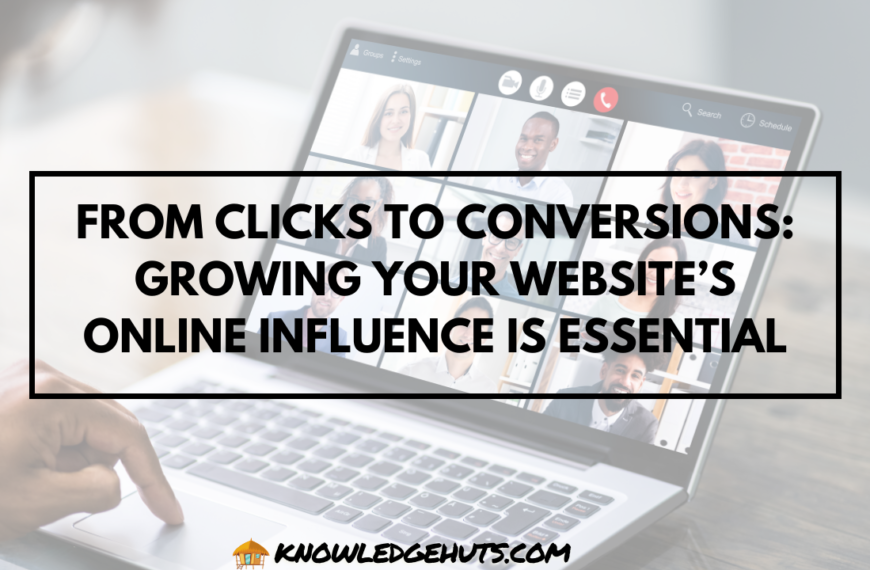
Specialized service providers often struggle to connect with their target audiences. Traditional marketing methods often fail to address the specific needs of niche markets. This leaves businesses wondering how to stand out in a crowded space.
Generic strategies don’t capture the attention of potential clients looking for specialized expertise. How can businesses build deeper relationships with clients? How can they engage effectively with niche groups? Personalized digital marketing offers a solution. It tailors messages and content to fit individual preferences.
In this article, we’ll explore how personalized digital marketing can help specialized service providers thrive in their industries.
Building Stronger Client Relationships
Personalized digital marketing is about more than sending relevant content. The objective is to build genuine connections with customers. Businesses can create more personalized communications by understanding their preferences, behaviors, and challenges. When clients feel their needs are addressed, trust is built. This leads to stronger relationships and greater loyalty. It also boosts long-term business growth.
For businesses in industries dealing with complex, high-stakes situations, personalized marketing is especially impactful. For instance, companies in the legal field can use this approach when working on cases like mesothelioma lawsuits. Similarly, medical malpractice cases often require a sensitive, customized approach as clients face emotional and financial challenges.
According to TorHoerman Law, a relevant example in the legal industry is the AFFF (aqueous film-forming foam) lawsuit. Law firms representing individuals exposed to harmful chemicals in firefighting foam use personalized outreach to connect with victims. These cases involve serious health concerns, making it critical to address clients’ unique needs.
The AFFF lawsuit is currently ongoing, with many individuals seeking legal recourse for long-term health issues caused by the toxic firefighting foam. Overall, personalized digital marketing is a powerful tool for law firms and other specialized service providers.
Can personalized marketing help resolve client concerns more effectively?
Personalized marketing allows businesses to directly address client concerns with targeted solutions. When businesses understand specific issues, they can offer tailored responses that feel more relevant. This level of attention ensures that clients feel heard and their problems are solved with care.
Increasing Conversion Rates
Personalized marketing helps potential clients feel understood and more connected. When messages are tailored, they speak directly to the client’s specific needs. Specialized providers can use customer data to segment audiences effectively.
Each group receives content or offers that match their interests or behavior. If someone explores a service, send them related content or exclusive deals.
This strategy helps communication feel more personal, not like a generic sales pitch.
Moreover, HBR notes that AI is helping sales teams use customer data to personalize pitches more effectively. It analyzes behavior, preferences, and past interactions to segment audiences with greater accuracy. This makes outreach more relevant, improving response rates and saving time on cold messaging.
Clients are more likely to act when they see something made for them. Conversions happen more often when personalization highlights value and relevance. Turning leads into loyal customers becomes easier with tailored marketing strategies.
Why is data-driven personalization important for conversions?
Data-driven personalization ensures that marketing efforts are based on actual client behavior and preferences. This increases the relevance of the content and offers, leading to more effective communication. The use of data makes it easier to identify patterns and predict the content that will drive conversions.
Enhancing Customer Retention
Keeping existing clients is often more efficient than finding new ones. Revenue Marketing Alliance states that this benefit stems from the data you already have, like demographics, preferences, and purchase patterns.
This helps you build more accurate, targeted campaigns that improve retention rates. Using internal data saves both time and money compared to external acquisition efforts.
Personalized marketing helps maintain strong, long-term relationships with current customers. Service providers can send customized emails that reflect past interactions or purchases.
Content made specifically for returning clients strengthens their connection with the brand. For example, sending reminders about upcoming service renewals based on a client’s past use shows attention to their needs. Clients feel remembered and appreciated when offers match their needs and history.
This attention builds trust and encourages clients to stick with the provider. Satisfied clients are more likely to return and recommend services to others. Retention grows stronger with consistent and thoughtful personalization efforts.
How does personalized email marketing improve retention rates?
Personalized email marketing improves retention by sending relevant messages based on past purchases or interactions. This creates a sense of continuity and attentiveness from the business. Clients are more likely to engage with emails that acknowledge their history and reflect their specific needs.
Improving Client Acquisition Through Targeted Advertising
Acquiring new clients becomes more effective through personalized digital advertising strategies. Specialized providers can segment their audience based on behaviors and preferences. Targeted ads are then shown to people likely to need the service.
McKinsey reports that personalized marketing can lower customer acquisition costs by up to 50%, saving a valuable budget. Companies using personalization often see revenue growth between 5% and 15%. Marketing ROI also improves significantly, with many brands reporting gains of 10% to 30%.
This is because personalized digital marketing focuses only on interested groups instead of reaching everyone. This makes the most of each dollar spent on digital ad campaigns. Potential clients are more engaged when ads speak to their specific problems.
Conversion rates improve when messaging feels direct and helpful from the start. Personalized advertising helps attract higher-quality leads with a stronger intent to buy. Client acquisition becomes less wasteful and more results-driven over time.
How does personalized advertising affect marketing costs?
Personalized advertising helps reduce marketing costs by focusing resources on high-value prospects. It helps businesses focus on reaching individuals who are more likely to engage. This targeted approach reduces acquisition costs and boosts the return on investment for ads.
Gaining Insights With Data Analytics
Personalized marketing allows service providers to collect meaningful customer data daily. Every client interaction gives insight into behavior, interests, and service preferences.
Wiley Online Library mentions that this approach helps build detailed customer profiles based on real behavior and preferences. It includes purchase history, browsing patterns, content engagement, and preferred ways of communication.
With access to this rich data, businesses can go beyond basic demographics. They can tailor strategies to specific customer segments for better results.
Website visits, email responses, and social actions offer valuable behavioral information. Tracking these touchpoints helps identify what draws the most attention from your clients. With this data, providers can shape future campaigns around actual client needs.
Data-driven marketing improves accuracy in messaging and offer development. Understanding what clients want leads to more effective personalization in every effort. Continuous improvement becomes possible with analytics guiding each personalized marketing decision.
What is the benefit of tracking engagement across multiple platforms?
Monitoring client interactions on various platforms gives businesses a complete understanding of their behavior. It helps businesses identify which platforms clients prefer and how they engage with content. By analyzing cross-platform engagement, businesses can create more cohesive, personalized marketing strategies.
Personalized digital marketing allows specialized service providers to move beyond broad outreach. It helps businesses create deeper connections with clients by addressing their specific needs. This approach drives stronger loyalty and increases conversion rates over time. Using data, businesses can optimize marketing spend while gaining valuable insights into client behavior.
These insights allow businesses to refine their strategies continuously. Tailored messaging ensures better engagement across platforms, helping businesses stay ahead of competitors. Personalized marketing helps specialized providers build long-term relationships and maintain sustained growth in their respective industries. This leads to improved market positioning and business success.







